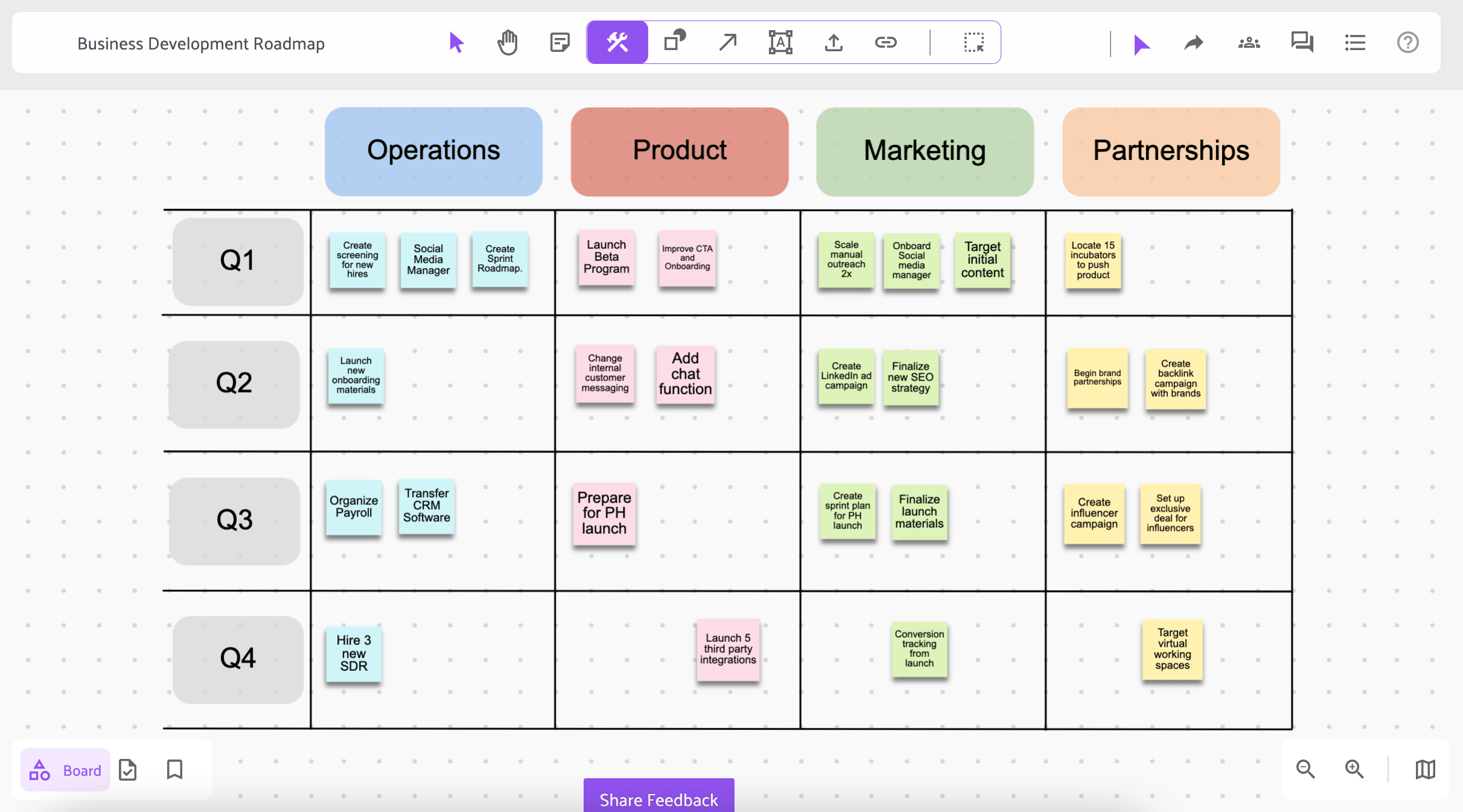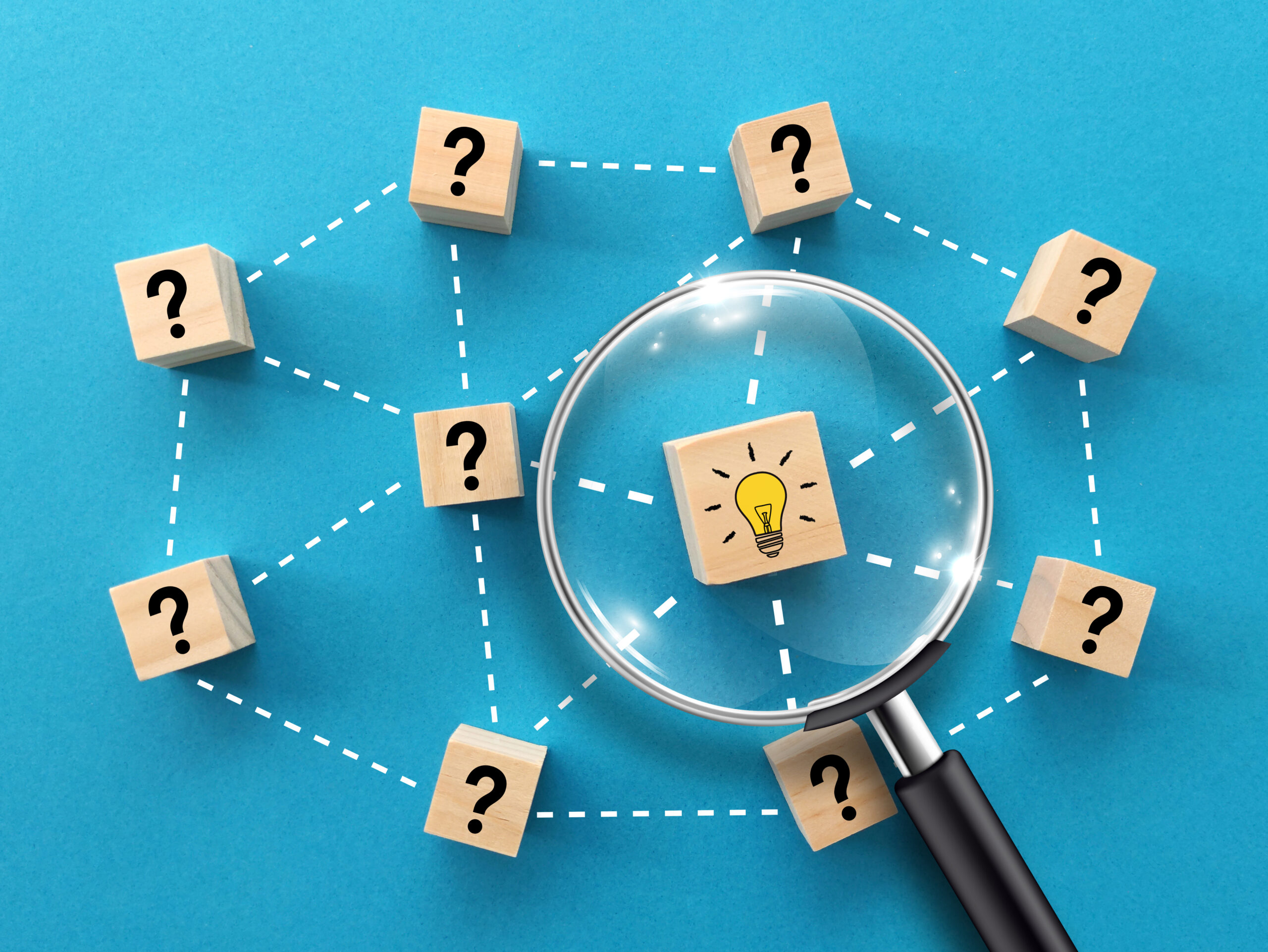One of the most famous quotes in business is, "Vision is everything!" As an entrepreneur, you will likely agree with this statement too. Every business needs a vision and a clear path to achieving its short and long-term goals. The first step in creating a clear vision for a business is developing a roadmap.
What is a Business Roadmap?
A business roadmap is defined as an outline that identifies the specific goals of a business and possible obstacles that may pop up while trying to achieve these goals. The goals may be short-term or long-term. Without a clear roadmap, a business can hardly be successful.
Business roadmaps are required for all organizations, regardless of the business niche, the company's size, or the number of employees. Here are some reasons why your business needs a roadmap.
The Key Components of a Business Roadmap
A business roadmap contains clear goals and a timeframe for reaching these business goals. However, a few other components make a business roadmap complete, like initiatives and dependencies.
- Goals: A goal is a target a business wants to achieve. For example, a YouTuber may wish his channel to grow from 10 views to 10 million views. Every complete roadmap has specific goals.
- Timeframe: A goal makes more sense when a timeframe is attached. Without a timeframe, it is difficult to measure progress. In line with the example above, a YouTuber with a whiteboard channel may want to achieve the 10 million views goal, not in 20 years but in the next two years. However, when creating a business roadmap, keep in mind that some goals may not be achieved within the expected timeframe due to uncontrollable events, which does not mean the business has failed.
- Initiatives: Initiatives add more "flavor" to a business roadmap. They are necessary actions or movements to support the short and long-term goals.
- Dependencies: These activities must be completed before other milestones in the roadmap can be achieved.
Learn more: 8 Useful Product Roadmap Examples
What are the Different Types of Business Roadmaps?
There are two.
1. Business Development Roadmaps.
2. Business Intelligence Roadmaps.
Business Development Roadmaps
Business development roadmaps reveal the strategic goals of a business to grow. Talk about a YouTuber who wants to expand his business; the business development roadmap will contain plans to hit 10 million views. More specifically, this could include growing his email list, collaborating with other YouTubers, and participating in more public forums to boost his channel's popularity and fame. These actions directly led to the growth and development of his business. Yes, that is a Business Development Roadmap.
Business Intelligence Roadmaps
Business intelligence roadmaps focus on improving the quality of the business by improving the business operations. A business intelligence roadmap for a YouTuber will contain plans for improving the quality of the videos, creating more entertaining and educative videos to keep the viewers glued, and sharing high-quality information that you can hardly find elsewhere. The framework of business intelligence roadmaps may not lead to immediate success, but they make a big difference in the long run. Note the difference.
Why Do You Need a Business Roadmap?
Like a driver navigating through an unfamiliar route needs a literal map to guide him, businesses need a roadmap to guide them on their path to success. The roadmap identifies a company's goals and the timeframe for executing these goals.
Roadmaps also help the founders and employees keep track of their success and become aware of where they have fallen short. Additionally, it gives investors an idea of what they are getting into and how they can help foster growth.
Additionally, you can achieve business goals faster with a roadmap. A business without a roadmap may still accomplish one or two things; however, just like a driver who has a clear map, businesses with roadmaps get to their destinations quickly. And in business, time is money. A company that loses time will inevitably lose money too.
Creating Your Business Roadmap
Developing a roadmap for your business is not so difficult if you know what to emphasize. So what is needed? Set goals for your business, and make the goals as specific as possible. Also, include a deadline for achieving these goals. Collect relevant data for your business model and identify patterns in the market. Add initiatives to your projections and envision what will be needed at each stage of the implementation process.
Finally, give room for unexpected events. Your strategy may not go as planned, but you will likely produce quality results that align with your business goals with proper planning, vision, and hard work. If you want to learn more about the different kinds of business models you can use, make sure to check out IdeaScale Whiteboard and try building them for yourself.
Learn more: What is Experience Map?
Most Recent Posts
Explore the latest innovation insights and trends with our recent blog posts.













